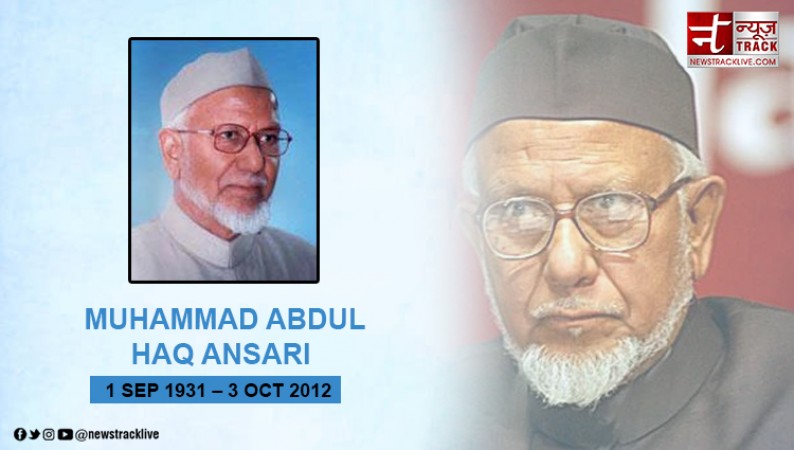
Today, September 1, marks the birthday Anniversary of Muhammad Abdul Haq Ansari, a distinguished Islamic scholar from India. Born on September 1, 1931, Ansari's legacy continues to inspire and illuminate the realms of Islamic thought, leadership, and education. His profound contributions, including his synthesis of Sufi and Shariah thought, establishment of educational initiatives, and literary endeavors, have left an indelible mark on the landscape of Islamic scholarship. As we commemorate his birth anniversary, we reflect upon his enduring impact and the legacy he has bestowed upon generations of scholars and seekers. His multifaceted contributions spanned the fields of education, leadership, and literature, making him a revered figure in both scholarly and religious circles. Serving as the Amir of Jamaat-e-Islami Hind (JIH) from 2003 to 2007, Ansari's life was a testament to his commitment to fostering a deep understanding of Islam's core tenets.
Early Life and Education
Born in the early 20th century, Ansari's formative years were marked by a passionate pursuit of knowledge. He delved into Islamic studies with a fervor that would become his hallmark throughout his life. His early education laid the foundation for his future endeavors, shaping his dedication to scholarly pursuits.
Leadership and Advocacy
Ansari's leadership within the Jamaat-e-Islami Hind showcased his ability to bridge various dimensions of Islamic thought. As the Amir of JIH, he provided guidance and direction to the organization during a critical period. His role extended beyond administration; he was a guiding light for individuals seeking a deeper understanding of Islam's teachings. Ansari's influence transcended organizational boundaries, as he also served on the Central Advisory Council of Jamaat-e-Islami Hind.
Synthesis of Sufi and Shariah Thought
One of Ansari's most notable contributions was his book titled "Sufism and Shariah." In this work, he undertook the ambitious task of synthesizing the intricate tapestries of Sufi and Shariah thought. Drawing from the wisdom of luminaries such as Shaikh Ahmed Sirhindi and Shah Waliullah, Ansari's work aimed to establish coherence and harmony between these two fundamental dimensions of Islamic philosophy. His in-depth exploration of kalam, tasawwuf, and fiqh allowed him to navigate the nuances of Islamic history and thought with remarkable insight.
Educational Initiatives
Ansari's commitment to education led him to establish the Islami Academy in New Delhi. This institution sought to bridge the gap between secular education and traditional Islamic sciences. Ansari envisioned a space where graduates from diverse educational backgrounds could immerse themselves in the rich teachings of Islam, all while adhering to the madrasa curriculum. His establishment of the Islami Academy reflected his belief in the harmonious coexistence of modern education and Islamic principles.
Literary Legacy
Ansari's literary legacy extended beyond "Sufism and Shariah." He penned a book dedicated to the philosophy of Mishkawah, showcasing his versatility in navigating philosophical realms. Additionally, he contributed significantly to the dissemination of knowledge through his English translation of Ibn Taymiyyah's fatwas, accompanied by a comprehensive introduction. Another noteworthy work by Ansari is "Learning the Language of Quran," an acclaimed guide for English-speaking beginners aiming to delve into the intricacies of the Quran.
Muhammad Abdul Haq Ansari's life journey epitomized a harmonious blend of scholarship, leadership, and advocacy. His contributions to Islamic thought, through works like "Sufism and Shariah," continue to influence scholars and seekers alike. His commitment to education and his establishment of the Islami Academy underscore his dedication to nurturing a generation well-versed in both modern education and Islamic teachings. Ansari's legacy serves as an inspiration for those who seek to bridge the gaps between different dimensions of Islamic thought and to contribute meaningfully to the intellectual tapestry of Islam. On his birth anniversary, let us remember and honor his profound contributions to the world of Islamic scholarship.